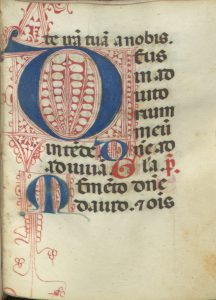The Digitization Advisory Committee (DigAC for short) is up and running. Established by the Library Management Team in February 2013, the Committee now has a formal charge in place (see below) and is meeting on a monthly basis. The Committee is currently looking at what digitization services the MU Libraries provides and what additional services are feasible. Like its predecessor, the Committee on Digitization Initiatives, the DigAC will look to provide digitization project support within the MU Libraries as well as supporting collaborative projects at MU. Feel free to contact one of the committee members if you have questions or ideas about the Libraries’ digitization services.
The Committee’s web page can be found here: http://mulibraries.missouri.edu/staff/committees/digitizationadvisory/digitizationadvisory.htm
Current members of DigAC are: Anne Barker, Dorothy Carner, Marie Concannon, Felicity Dykas, Michael Holland, Anselm Huelsbergen, Amy Lana, Ann Riley, Ernest Shaw, and Shelley Worden.
MU Libraries Digitization Advisory Committee Committee Charge June 2013
The Digitization Advisory Committee has responsibility for:
• Advising the Digital Services Department on prioritizing, coordinating, and planning local digitization projects;
• ensuring that metadata and preservation considerations are addressed as part of the collection development process;
• coordinating with the MERLIN Digital Projects Committee;
• the formulation of policies and best practices in digitization in the MU Libraries;
• acting as an advisory body to the Library Management Team regarding the role of the library in digitization-related activities and services, needed resources and infrastructure in support of digitization activities, and participation in collaborative projects with other institutions;
• facilitating collaborative efforts for digitization projects and services in the MU Libraries, the University of Missouri (Columbia), and with extra-mural partners.
The Committee will also, in cooperation with the Office of Sponsored Programs Administration, participate in identifying granting agencies that support the development of digital collections and cooperate in drafting grant proposals to those agencies.
Committee Organization
The Committee will be appointed by the Director of the Libraries and include representation from Special Collections, Archives and Rare Books (SCARaB), Acquisitions/Collection Development, the Head of the Catalog Department, the Digital Humanities Coordinator and two to four other librarians or staff. One of the two to four other librarians or staff should be part of the Research & Information Services Division and one should be from the Health Sciences Libraries. Ex-officio members will include the Associate Director for SCARaB, the Associate Director for Access, Collections and Technical Services, and the Head of Library Technology Services.
Terms for the rotating members of the Digitization Advisory Committee will be two years and will be staggered to ensure committee continuity. Terms may be renewed by the Director of the Libraries. The Director of the Libraries will entertain nominations and self-nominations for the rotating member positions as part of the annual committee staffing process.
Submitted by Anselm Huelsbergen
Chair, Digitization Advisory Committee
 ary. Books of hours would have been familiar to most members of the middle and upper classes by the late Middle Ages. These devotional books have as their central text the Little Office of the Blessed Virgin, a shortened version of the daily cycle of Christian devotions called the Divine Office. This book of hours also includes more specialized prayers and litanies relating to the Virgin Mary. The original, which was possibly made as early as 1450, is in the Ellis Library Special Collections Department. It is about 3.7 inches in height and is 330 pages long.
ary. Books of hours would have been familiar to most members of the middle and upper classes by the late Middle Ages. These devotional books have as their central text the Little Office of the Blessed Virgin, a shortened version of the daily cycle of Christian devotions called the Divine Office. This book of hours also includes more specialized prayers and litanies relating to the Virgin Mary. The original, which was possibly made as early as 1450, is in the Ellis Library Special Collections Department. It is about 3.7 inches in height and is 330 pages long.